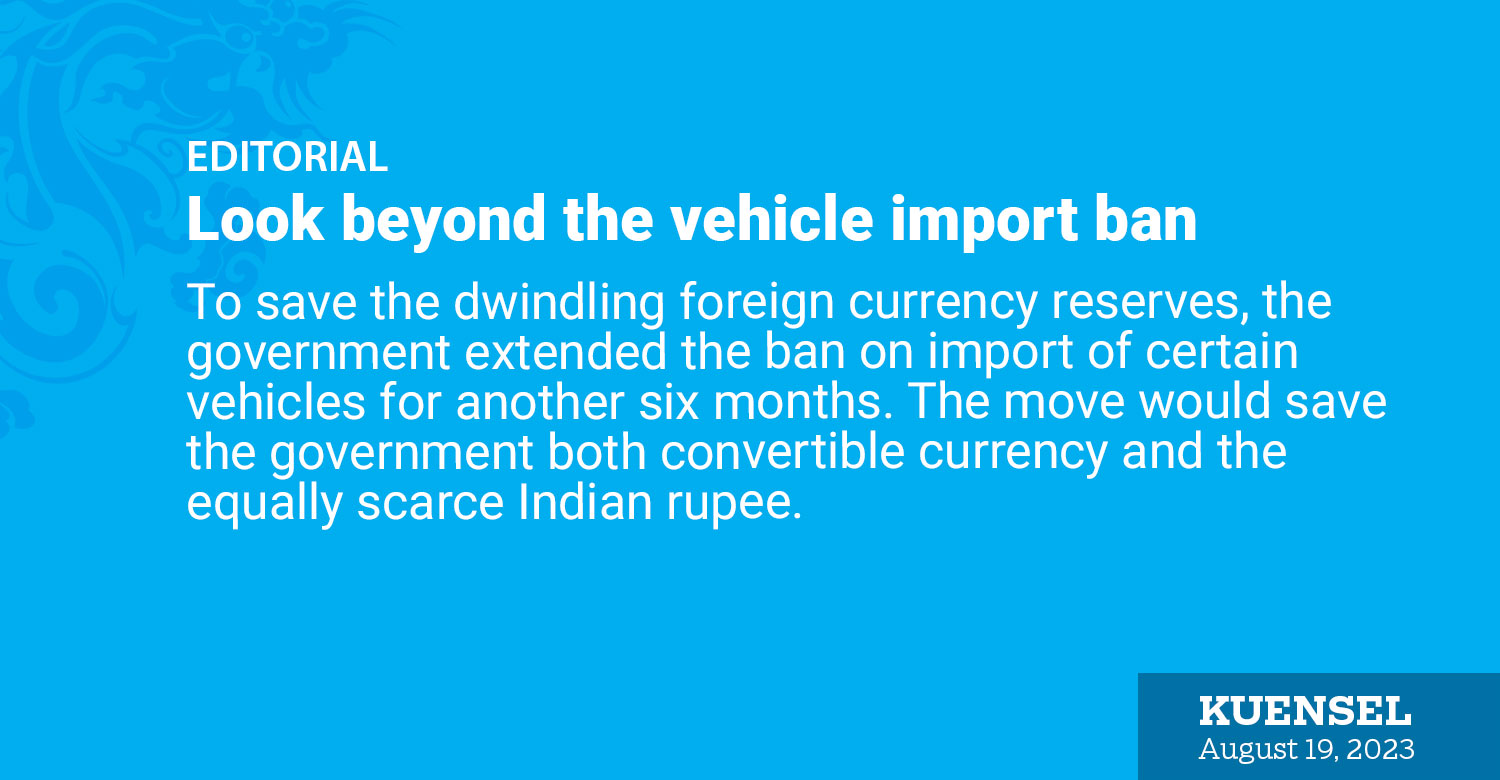To save the dwindling foreign currency reserves, the government extended the ban on import of certain vehicles for another six months. The move would save the government both convertible currency and the equally scarce Indian rupee.
The love for vehicles, big or small, costs the government exchequer heavily. In 2022 when we were recovering from the impact of the Covid-19 pandemic, which many blamed disrupted lives and businesses, we imported Nu 3.27 billion worth of vehicles.
Even with concerns of declining reserves, it is difficult to stop importing vehicles. As of June 30, 2022, there were 126,501 vehicles in the country – one for every five. The government issued a moratorium on the import of vehicles (with some exceptions) in August 2022. As of June 30, this year, with a ban or moratorium, the number increased by 3,636 vehicles.
In other words, the ban is not working even if it reduces imports and helps the government save foreign exchange reserves. The move, therefore, has angered those in the vehicle import business, some of whom are asking for compensation or means to sustain their business and save their employees.
Import of vehicles from Japan, South Korea, and India drains foreign currency reserves. But it is not only cars, trucks or buses that are draining the reserves. As an import-dependent country, we import almost everything except, maybe, Seyseyshamu. However, there are many that we can ban without even feeling the impact and save the hard-earned convertible currency. Walk into a grocery-cum-bar and we will see that two in five items are not essential or even needed on health grounds.
If the government is really feeling the heat of dwindling foreign currency reserves, it is time to take bold decisions. There are dozens of items on the grocery shelves that we can do without and save the outflow of convertible currency. For instance, why do we need to import alcohol or non-alcoholic beverages from as far as Australia, Japan, or South Korea? In the name of free trade, we are hitting where it hurts the most – foreign currency reserves and the liver.
The import bill should influence decision-making. Import value increased by 38 percent in the first quarter of the year or an increase from Nu 22.87 billion to Nu 31.69 billion in the same period last year. Landlocked Bhutan cannot live without imports, but we can survive without a lot of things on our shelves. Much of what we see in the grocery shops is not needed.
In light of the country’s foreign currency reserves hoovering below the threshold required to cover one year’s essential imports during a normal period, bold decisions have to be made. Imposing a ban on items, essential or luxury will not be popular, but it has to be done if the government coffer (forex) is reaching the critical level.
For instance, the 35 percent customs duty on noodles imported from third countries was reduced to 10 to bring down cost. Importers, wholesalers and retailers are having the last laugh, while what we all see is a dwindling hard currency reserve or perhaps, an increasing number of Bhutanese relishing on junk flooding our market.
To put into context, the import bill for tobacco and beverages, noodles and pasta was Nu 4.62 billion in 2022. It calls for some interventions beyond the ban on import of vehicles.


